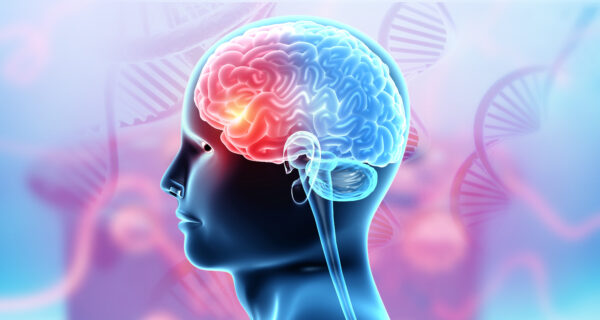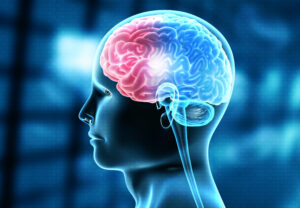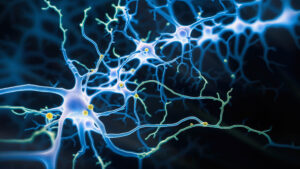Tryptophan & Serotonin Synthesis Blood Test
$199.00
Tryptophan is an essential amino acid that plays a critical role in the synthesis of serotonin, a key neurotransmitter involved in regulating mood, sleep, appetite, and other physiological functions.
The synthesis of serotonin from tryptophan involves two main enzymatic steps:
- Conversion to 5-Hydroxytryptophan (5-HTP): The enzyme tryptophan hydroxylase catalyzes the hydroxylation of tryptophan to form 5-hydroxytryptophan (5-HTP). This is the rate-limiting step in the synthesis of serotonin. Tryptophan hydroxylase requires the cofactor tetrahydrobiopterin (BH4) and molecular oxygen to function.
- Conversion to Serotonin (5-Hydroxytryptamine, 5-HT): The enzyme aromatic L-amino acid decarboxylase (AADC), also known as DOPA decarboxylase, decarboxylates 5-HTP to produce serotonin. This step is relatively fast and not considered rate-limiting.
Importance of Serotonin
- Serotonin is crucial for various bodily functions, including:
- Mood Regulation: Serotonin is often referred to as the “feel-good” neurotransmitter because of its significant role in mood stabilization and the prevention of depression and anxiety.
- Sleep: Serotonin is a precursor to melatonin, a hormone that regulates sleep-wake cycles. Adequate serotonin levels are essential for healthy sleep patterns.
- Appetite Control: Serotonin helps regulate appetite and satiety, influencing eating behavior and weight management.
- Cognitive Functions: Serotonin affects various cognitive functions, including memory and learning.
- Gut Function: A large proportion of the body’s serotonin is found in the gastrointestinal tract, where it regulates intestinal movements and function.
- Factors Affecting Tryptophan Availability and Serotonin Synthesis
- Diet: Tryptophan is obtained from dietary sources such as poultry, eggs, dairy products, nuts, seeds, tofu, and legumes. Adequate dietary intake is essential for sufficient serotonin production.
- Transport Across the Blood-Brain Barrier: Tryptophan must cross the blood-brain barrier to be converted into serotonin in the brain. This transport is competitive with other large neutral amino acids, so the presence of these amino acids in the diet can influence tryptophan availability.
- Cofactors and Enzyme Activity: The activity of the enzymes tryptophan hydroxylase and AADC, as well as the availability of cofactors like BH4, vitamin B6, and iron, can affect serotonin synthesis.
- Clinical Relevance
- Mood Disorders: Low levels of serotonin are associated with mood disorders such as depression and anxiety. Selective serotonin reuptake inhibitors (SSRIs), a common class of antidepressants, work by increasing serotonin levels in the brain.
- Sleep Disorders: Disruptions in serotonin levels can affect sleep patterns and contribute to sleep disorders such as insomnia.
- Appetite and Weight Control: Serotonin plays a role in appetite regulation, and imbalances can lead to eating disorders and weight management issues.
In summary, tryptophan is vital for the synthesis of serotonin, which is essential for mood regulation, sleep, appetite, and various other physiological functions. Ensuring adequate tryptophan intake and supporting its metabolism can have significant implications for mental health and overall well-being.
6 Tryptophan Metabolites tested: Tryptophan, Kynurenine, Tryptophan/Kynurenine Ratio, 5-Hydroxytryptophan (5-HTP), Serotonin, Melatonin
Description
Tryptophan is an essential amino acid that plays a critical role in the synthesis of serotonin, a key neurotransmitter involved in regulating mood, sleep, appetite, and other physiological functions.
The synthesis of serotonin from tryptophan involves two main enzymatic steps:
- Conversion to 5-Hydroxytryptophan (5-HTP): The enzyme tryptophan hydroxylase catalyzes the hydroxylation of tryptophan to form 5-hydroxytryptophan (5-HTP). This is the rate-limiting step in the synthesis of serotonin. Tryptophan hydroxylase requires the cofactor tetrahydrobiopterin (BH4) and molecular oxygen to function.
- Conversion to Serotonin (5-Hydroxytryptamine, 5-HT): The enzyme aromatic L-amino acid decarboxylase (AADC), also known as DOPA decarboxylase, decarboxylates 5-HTP to produce serotonin. This step is relatively fast and not considered rate-limiting.
Importance of Serotonin
- Serotonin is crucial for various bodily functions, including:
- Mood Regulation: Serotonin is often referred to as the “feel-good” neurotransmitter because of its significant role in mood stabilization and the prevention of depression and anxiety.
- Sleep: Serotonin is a precursor to melatonin, a hormone that regulates sleep-wake cycles. Adequate serotonin levels are essential for healthy sleep patterns.
- Appetite Control: Serotonin helps regulate appetite and satiety, influencing eating behavior and weight management.
- Cognitive Functions: Serotonin affects various cognitive functions, including memory and learning.
- Gut Function: A large proportion of the body’s serotonin is found in the gastrointestinal tract, where it regulates intestinal movements and function.
- Factors Affecting Tryptophan Availability and Serotonin Synthesis
- Diet: Tryptophan is obtained from dietary sources such as poultry, eggs, dairy products, nuts, seeds, tofu, and legumes. Adequate dietary intake is essential for sufficient serotonin production.
- Transport Across the Blood-Brain Barrier: Tryptophan must cross the blood-brain barrier to be converted into serotonin in the brain. This transport is competitive with other large neutral amino acids, so the presence of these amino acids in the diet can influence tryptophan availability.
- Cofactors and Enzyme Activity: The activity of the enzymes tryptophan hydroxylase and AADC, as well as the availability of cofactors like BH4, vitamin B6, and iron, can affect serotonin synthesis.
- Clinical Relevance
- Mood Disorders: Low levels of serotonin are associated with mood disorders such as depression and anxiety. Selective serotonin reuptake inhibitors (SSRIs), a common class of antidepressants, work by increasing serotonin levels in the brain.
- Sleep Disorders: Disruptions in serotonin levels can affect sleep patterns and contribute to sleep disorders such as insomnia.
- Appetite and Weight Control: Serotonin plays a role in appetite regulation, and imbalances can lead to eating disorders and weight management issues.
In summary, tryptophan is vital for the synthesis of serotonin, which is essential for mood regulation, sleep, appetite, and various other physiological functions. Ensuring adequate tryptophan intake and supporting its metabolism can have significant implications for mental health and overall well-being.
6 Tryptophan Metabolites tested: Tryptophan, Kynurenine, Tryptophan/Kynurenine Ratio, 5-Hydroxytryptophan (5-HTP), Serotonin, Melatonin






